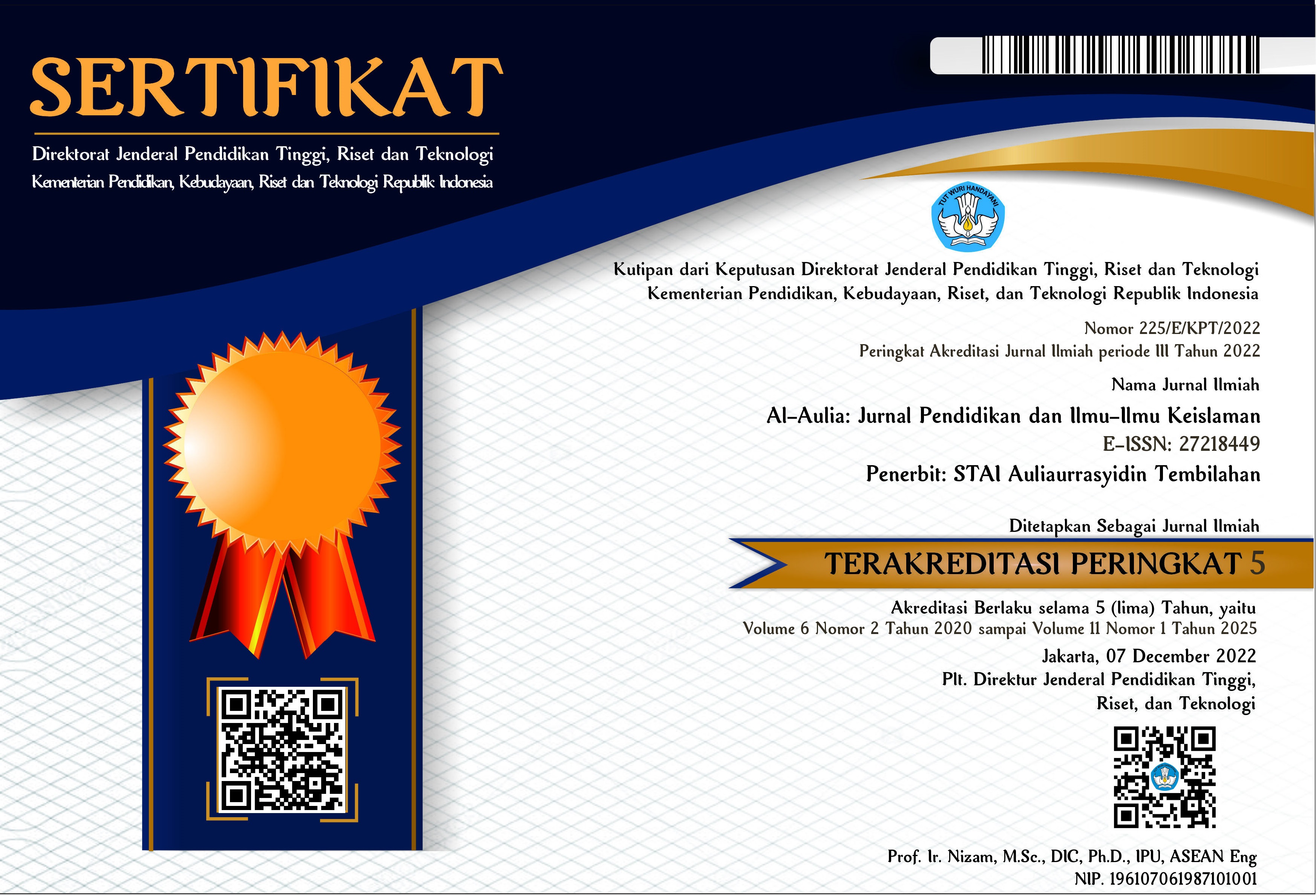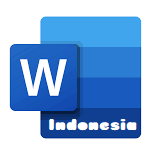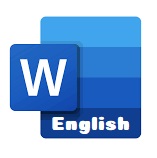Peran Pendidikan Agama Islam dalam Pembentukan Kehidupan Sosial di Masyarakat
DOI:
https://doi.org/10.46963/aulia.v8i1.537Keywords:
Role of Education, Formation of Education, Social SocietyAbstract
As a prospective educator who will be required to grow and develop the basic potential of students and their tendencies towards something of interest in accordance with existing abilities and talents, it is important for us to know about the basic potentials possessed by humans in general because humans have a very special position. central to education. Not only as a subject but also as an object of education itself. For this reason, in this paper the author tries to explain a little discussion about the potentials of humans and the concepts in their development in terms of the philosophy of Islamic education.
References
Subli, Mahasiswa Universitas Muhamadiyah Sumatera Barat.
Kamaliah, Mahasiswa Universitas Muhamadiyah Sumatera Barat
Tedi Priatna, Reaktualisasi Paradigma Pendidikan Islam, Bandung: Pustaka Bani Quraisy, 2004.
Ahmad Tafsir, Ilmu Pendidikan Dalam Perspektif Islam, Bandung: PT Remaja Rosdakarya, 2007.
Hafi Ansarhari, Pengan tar Ilmu Pendidikan, (Jawa Barat: Usaha Nasional 1983.
Hasan Langugulung, Manusia dan Pendidikan suatu analisa psikologi dan pendidikan, Jakarta: PT Al Husna zikra, 1995.
Downloads
Published
Issue
Section
License
Authors who publish with this journal agree to the following terms:
1. Copyright on any article is retained by the author(s).
2. The author grants the journal, right of first publication with the work simultaneously licensed under a Creative Commons Attribution License that allows others to share the work with an acknowledgment of the work’s authorship and initial publication in this journal.
3. Authors are able to enter into separate, additional contractual arrangements for the non-exclusive distribution of the journal’s published version of the work (e.g., post it to an institutional repository or publish it in a book), with an acknowledgment of its initial publication in this journal.
4. Authors are permitted and encouraged to post their work online (e.g., in institutional repositories or on their website) prior to and during the submission process, as it can lead to productive exchanges, as well as earlier and greater citation of published work.
5. The article and any associated published material is distributed under the Creative Commons Attribution-ShareAlike 4.0 International License







